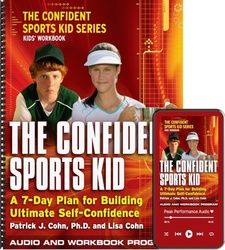What Athletes Can Do When Coaches Pick Favorites
Article Summary
Many sports parents believe coaches show favoritism when their kids don’t get enough playing time. Jen Fry, a sports geographer and speaker, says this belief often comes from parents overestimating their child’s skill and tying it to time, money, and private lessons invested. She notes that hard work, teamwork, and trust—not cost or effort—earn playing opportunities. Fry advises that instead of parents confronting coaches, athletes should learn to advocate for themselves by asking what skills they need to improve to earn more time on the field or court. Teaching kids to communicate directly and take responsibility builds confidence, accountability, and life skills that extend beyond sports.
Parents are very emotional about their kids’ youth sports experiences. They invest a significant amount of money in youth sports, which raises their expectations. Because of these factors, they may feel that coaches favor other players when their kids aren’t getting the playing time they want.
That’s the word from Jen Fry, a TEDx speaker, owner of JenFryTalks and sports geographer, which means she studies how geographical factors, like terrain, influence which sports are played in specific areas.
We recently interviewed her for our Ultimate Sports Parent podcast. She often participates in conversations on social media groups and has found that favoritism is one of the topics that comes up most often.
“I think that a lot of parents are underestimating other kids’ skills and overestimating their kids’ skills. And when I say overestimating their kid’s skills, they are tying it into the length of time that their kid has played club sports,” she said.
They also look at how many private lessons kids have had and how much money they’ve spent on youth sports.
All these factors don’t necessarily mean kids get more playing time opportunities. But kids who work hard, do their job and are good teammates are often favored, she said.
“Is that enough to keep them on the court over someone who is drastically better. No. Does it give them a little bit more room for error because there’s more trust? Yes.”
Parents are more likely than young athletes to think the coach is playing favorites, she added. Then kids start to believe this, too. “The frustration of time and money is sitting on parents’ shoulders, it creates more emotion and more expectation, way more,” Fry said.
Coaches should be as honest as possible about why certain kids get more playing time and others don’t, she said. But this can create a Catch-22. When coaches are honest, sometimes parents complain to schools or leagues.
Parents should not talk to coaches about perceived favoritism, she said.
“We are in the business of teaching kids holistically how to be great humans. And a part of being a great human is advocating for themselves and setting boundaries, doing the hard stuff.”
That means saying to a coach, ‘I’m not playing. What skills do I need to work on to play?’” Fry said.
Young athletes should work on the skills identified by the coach. In addition, parents should teach their kids to advocate for themselves, she said.
“When it comes to the hard, messy stuff, the kids don’t have the skills. And the parents will say, ‘Well, my kid’s really shy.’ That’s fine, but your kid has to have a different push on it. When they’re on the court, they can’t be shy,” Fry said.
Tips to Help Kids With Playing Time
1. Let Your Child Communicate with the Coach
Encourage your child to ask the coach what specific skills they need to improve to earn more playing time. This builds confidence, accountability, and self-advocacy instead of relying on parents to intervene.
2. Focus on Effort, Teamwork, and Attitude
Remind your child that playing time isn’t determined by money spent or lessons taken. Coaches value athletes who work hard, follow direction, and support their teammates. These traits earn trust and opportunity.
3. Manage Expectations and Emotions
Stay calm and realistic about your child’s abilities and role on the team. Avoid assuming favoritism and model emotional control. Your perspective shapes how your child handles feedback, adversity, and growth.
Listen to the entire podcast with Fry on Apply Podcasts or Spotify:
FAQ: How Sports Kids Can Stay Confident With Lack of Playing Time
1. Why do some parents believe coaches play favorites?
Parents often tie their expectations to the time, money, and lessons invested in youth sports. When their child doesn’t get much playing time, they may assume favoritism instead of recognizing other players’ performance or fit.
2. What do coaches usually look for when deciding playing time?
Coaches reward effort, teamwork, attitude, and consistency. Players who do their job, support teammates, and show trustworthiness often earn more opportunities.
3. Should parents talk to coaches about playing time?
No. It’s better for the athlete to approach the coach directly. This helps kids learn to communicate, advocate for themselves, and take responsibility for their development.
4. How can young athletes handle limited playing time?
They should ask their coach what skills they need to improve, then focus on those areas in practice. Staying patient and working hard helps them earn trust and confidence.
5. What can parents do to support their child through frustration?
Keep emotions in check and avoid comparing your child to others. Emphasize effort, progress, and learning over results. Your attitude sets the tone for how your child responds to challenges.
6. What life skill does this teach young athletes?
Self-advocacy. Learning to ask questions, seek feedback, and take ownership of growth builds confidence and independence both in sports and beyond.
Related Youth Psychology Articles
- Helping Young Athletes with Coaches Who Yell
- How Youth Sports Coaches Can Build Resilience in Kids
- Coaches: Ensure Kids Love their Sport
The Focused Sports Kid – Digital Download
“The Focused Sports Kid” helps sports kids who get easily distracted and can’t maintain their focus in competition. In this program, you and your athlete learn concentration-boosting strategies to help young athletes develop laser focus during competition. “The Focused Sports Kid” is two programs in one. You get a manual and Audio program for parents/coaches, and a PDF workbook and audio programs for young athletes.
“We just completed the first ten tips, it has helped tremendously for (our daughter) and us. We’ve learned to keep our behavior and comments in check. She’s letting mistakes happen and not worrying about them, she’s now just moves on to the next play with the same attitude as before the mistakes. She’s playing more aggressively all game. Her coach even mentioned that whatever we are doing, keep doing because it’s working.”*
~Scott, Sports Dad


